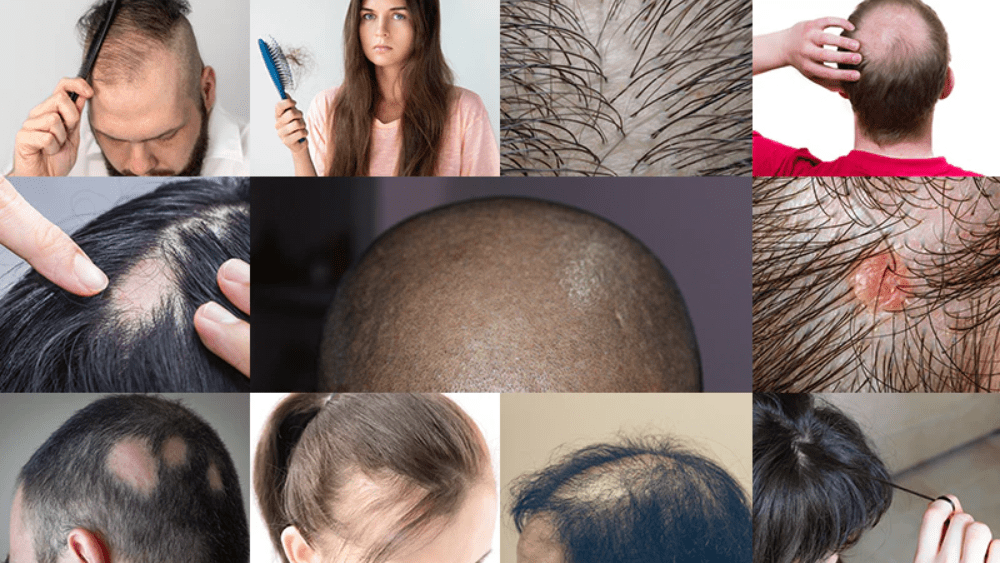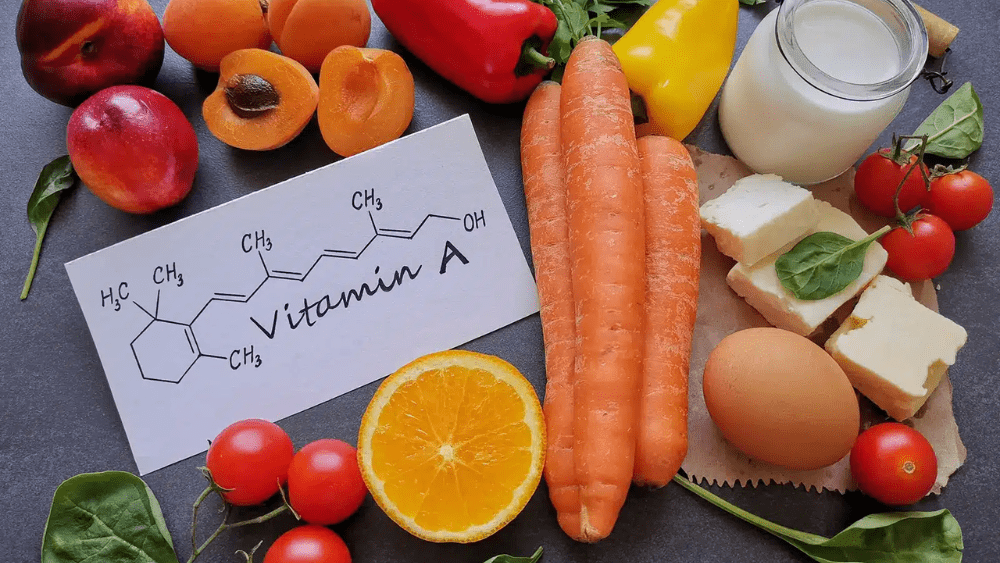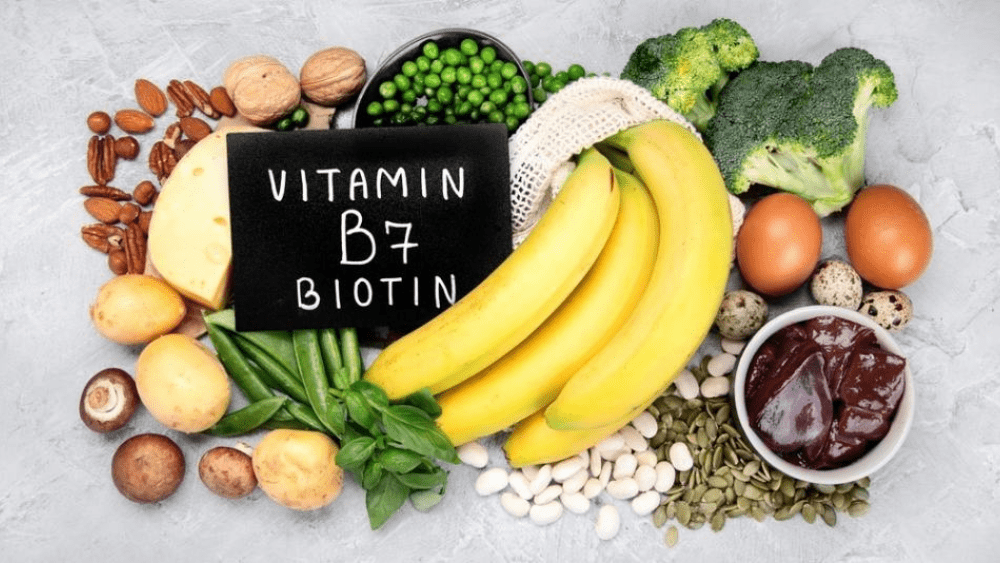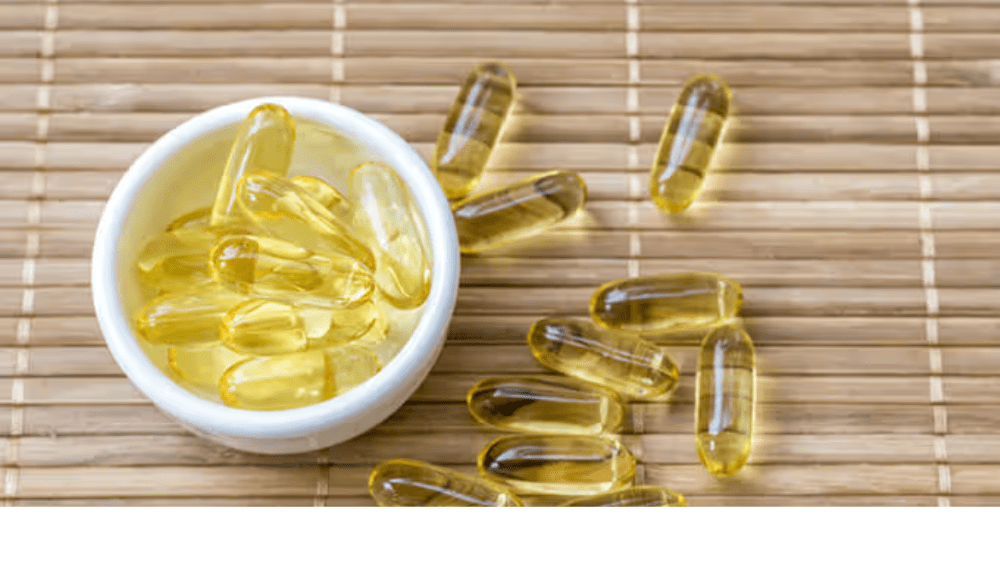Discover the essential vitamins and supplements in hair health. Learn how nutrients like biotin, vitamin D, vitamin E, and omega-3 fatty acids contribute to hair strength, growth, and shine. This comprehensive guide explores the best vitamins for hair health, their benefits, and how they support the natural growth cycle.
Introduction
Hair health is one of the top concerns for many people, with good reason. Our hair plays a critical role in shaping our appearance and overall well-being. Factors such as diet, lifestyle, genetics, and environmental influences can impact the quality and strength of our hair. While a balanced diet rich in nutrients is key to maintaining healthy hair, vitamins and supplements in hair health have become increasingly popular in recent years. These products are believed to support and enhance hair growth, prevent hair loss, and improve the overall texture and strength of hair..
Understanding the Role of Vitamins and Supplements in Hair Health
Vitamins and supplements in hair health provide essential nutrients that our hair follicles need to thrive. Hair growth is a complex process that involves the hair follicles, the scalp, and the nutrients our body absorbs. A deficiency in certain vitamins and minerals can lead to hair loss, thinning, and poor hair texture. On the other hand, providing the body with adequate nutrition through vitamins and supplements can improve the health of your hair and support growth.
When it comes to hair health, vitamins and supplements in hair health can address deficiencies in specific nutrients, helping the hair grow stronger and healthier. Supplements provide nutrients that may be lacking in the diet due to poor eating habits or environmental factors like stress and pollution.
What Causes Hair Health Issues?

Before diving into the specifics of vitamins and supplements, it’s important to understand the common causes of hair issues:
- Nutrient Deficiency: Insufficient intake of vitamins and minerals can lead to hair thinning or loss.
- Hormonal Imbalance: Hormonal changes due to pregnancy, menopause, or thyroid problems can affect hair health.
- Stress: Chronic stress can lead to hair shedding and loss due to an imbalance in cortisol levels.
- Genetics: Inherited patterns of hair loss are common, especially with male-pattern baldness.
- Environmental Factors: Exposure to pollution, UV radiation, and harsh chemicals can damage hair and scalp health.
Essential Vitamins and Supplements in Hair Health
There are Several vitamins and supplements in hair health.
1. Vitamin A

Vitamin A is essential for cell growth, including hair cells. It helps to maintain a healthy scalp and supports the production of sebum, the oily substance that nourishes the hair follicles and keeps the scalp hydrated. However, too much Vitamin A can lead to hair loss, so it’s crucial to get the right amount.
Sources of Vitamin A:
- Carrots
- Sweet potatoes
- Spinach
- Kale
- Eggs
Benefits of Vitamin A for Hair Health:
- Encourages healthy hair growth.
- Maintains the health of the scalp.
- Promotes the production of sebum, which nourishes the hair follicles.
2. Biotin (Vitamin B7)

Biotin is often considered the go-to Vitamins and Supplements in Hair Health. It plays a crucial role in the production of keratin, the protein that makes up the hair, skin, and nails. A deficiency in biotin can lead to brittle hair and even hair loss.
Sources of Biotin:
- Eggs
- Almonds
- Sweet potatoes
- Spinach
- Oats
Benefits of Biotin for Hair Health:
- Supports the production of keratin.
- Strengthens hair and prevents brittleness.
- Promotes hair growth and reduces hair thinning.
3. Vitamin C
Vitamin C is a powerful antioxidant that helps in the production of collagen, a protein that strengthens hair and prevents it from becoming brittle. It also aids in the absorption of iron, which is important for healthy hair growth.
Sources of Vitamin C:
- Citrus fruits (oranges, lemons)
- Strawberries
- Bell peppers
- Broccoli
Benefits of Vitamin C for Hair Health:
- Strengthens hair by boosting collagen production.
- Protects hair from damage due to free radicals.
- Improves iron absorption, which is vital for hair growth.
4. Vitamin D
Vitamin D is also one the Vitamins and Supplements in Hair Health. A deficiency in Vitamin D has been linked to hair loss, including conditions like alopecia. This vitamin helps stimulate hair follicles, promoting hair growth and thickness.
Sources of Vitamin D:
- Sunlight exposure
- Fatty fish (salmon, mackerel)
- Fortified foods (milk, cereal)
- Egg yolks
Benefits of Vitamin D for Hair Health:
- Encourages the growth of new hair follicles.
- Reduces hair thinning and promotes hair regeneration.
- Strengthens the hair strand.
5. Vitamin E

Vitamin E is an antioxidant that improves blood circulation to the scalp. This helps nourish the hair follicles and prevents oxidative stress that can damage the hair. It is also known to support the overall health of the scalp.
Sources of Vitamin E:
- Sunflower seeds
- Almonds
- Spinach
- Avocados
Benefits of Vitamin E for Hair Health:
- Improves circulation to the scalp.
- Protects hair from oxidative stress.
- Supports overall scalp health.
6. Iron
Iron is crucial for the production of hemoglobin, which carries oxygen to the hair follicles. Without sufficient iron, the hair follicles may become oxygen-deprived, leading to hair loss and thinning.
Sources of Iron:
- Red meat
- Lentils
- Spinach
- Tofu
- Quinoa
Benefits of Iron for Hair Health:
- Promotes healthy hair growth by increasing oxygen supply to hair follicles.
- Prevents hair thinning and hair loss due to anemia.
7. Zinc
Zinc is a trace mineral that helps support the growth and repair of hair tissues. It also maintains the oil glands around hair follicles, which are essential for healthy hair. Zinc deficiency can lead to hair shedding and a dry, flaky scalp.
Sources of Zinc:
- Oysters
- Red meat
- Pumpkin seeds
- Chickpeas
Benefits of Zinc for Hair Health:
- Strengthens hair and promotes growth.
- Prevents hair loss and thinning.
- Helps maintain a healthy scalp.
8. Omega-3 Fatty Acids

Omega-3 fatty acids are essential fats that support overall hair health. They nourish the hair follicles, promote scalp health, and help reduce hair inflammation, which can lead to hair thinning.
Sources of Omega-3 Fatty Acids:
- Fatty fish (salmon, mackerel)
- Walnuts
- Chia seeds
- Flaxseeds
Benefits of Omega-3 Fatty Acids for Hair Health:
- Nourishes hair follicles.
- Reduces inflammation in the scalp.
- Promotes healthy hair growth.
How to Incorporate Vitamins and Supplements into Your Routine

While you can obtain many vitamins and minerals from food sources, incorporating vitamins and supplements in hair health can help ensure you’re meeting your nutritional needs. Here’s how to add them into your routine:
- Consult a Healthcare Provider: Before starting any supplements, it’s important to consult with a healthcare provider or nutritionist, especially if you’re already taking other medications or supplements.
- Choose High-Quality Supplements: Look for reputable brands that offer high-quality vitamins and supplements specifically designed for hair health. Some supplements combine several key nutrients, which can be more convenient than taking multiple pills.
- Maintain a Balanced Diet: While supplements can help, they should not replace a healthy diet. Ensure you’re eating a balanced diet with a variety of nutrient-rich foods that support overall hair health.
- Monitor Results: Hair health may take time to improve with vitamins and supplements. Be patient, as visible results may take a few weeks to months.
Conclusion
In conclusion, the role of vitamins and supplements in hair health cannot be overstated. Key vitamins like Vitamin A, Biotin, Vitamin C, Vitamin D, Vitamin E, iron, zinc, and omega-3 fatty acids are essential for maintaining healthy hair, promoting growth, and preventing hair loss. A well-rounded diet combined with appropriate supplements can ensure that your hair receives the nutrients it needs for optimal health.
While supplements can play a significant role in enhancing hair health, they should be part of a holistic approach that includes a balanced diet, a healthy lifestyle, and proper hair care practices. By incorporating the right vitamins and supplements into your daily routine, you can take steps toward achieving strong, healthy, and beautiful hair.
FAQs
What are the best vitamins for hair health?
The best vitamins for hair health include Vitamin A, Biotin (Vitamin B7), Vitamin C, Vitamin D, Vitamin E, Iron, Zinc, and Omega-3 fatty acids. These vitamins help nourish hair follicles, promote growth, and maintain overall scalp health.
Can vitamins really help with hair growth?
Yes, vitamins and supplements can support hair growth by providing essential nutrients that the body may lack. Deficiencies in key vitamins and minerals can contribute to hair loss and thinning, so ensuring adequate intake can improve hair health and stimulate growth.
How long does it take for vitamins and supplements to improve hair health?
Results from vitamins and supplements may take a few weeks to months to become noticeable. Hair growth is a slow process, and visible changes typically occur after 3 to 6 months of consistent use.
Can taking too many vitamins cause hair loss?
Yes, excessive intake of certain vitamins, particularly Vitamin A, can lead to hair loss. It’s essential to follow recommended dosages and avoid overdosing, as too much of certain nutrients can cause harm rather than benefit.
Are hair vitamins safe to take daily?
Generally, hair vitamins are safe to take daily when consumed according to the recommended dosage. However, it’s important to consult a healthcare provider before starting any new supplement, especially if you are on other medications or have underlying health conditions.
Can I get enough vitamins for hair health from my diet alone
In many cases, a balanced diet can provide the necessary vitamins and minerals for healthy hair. However, if you have a nutrient deficiency or struggle to maintain a well-rounded diet, supplements can help fill in the gaps.
Are there any side effects of taking hair supplements?
Most hair supplements are safe when taken as directed, but some people may experience mild side effects like digestive issues, headaches, or skin reactions. It’s essential to monitor any adverse effects and discontinue use if necessary.
Can I get enough vitamins for hair health from my diet alone?
In many cases, a balanced diet can provide the necessary vitamins and minerals for healthy hair. However, if you have a nutrient deficiency or struggle to maintain a well-rounded diet, supplements can help fill in the gaps.
Are there any side effects of taking hair supplements?
Most hair supplements are safe when taken as directed, but some people may experience mild side effects like digestive issues, headaches, or skin reactions. It’s essential to monitor any adverse effects and discontinue use if necessary.
Can Omega-3 fatty acids improve hair health?
Yes, Omega-3 fatty acids nourish hair follicles, reduce inflammation in the scalp, and improve overall hair health. They also promote a healthy scalp environment, which is crucial for hair growth.
How can I choose the right hair supplement for my needs?
To choose the right hair supplement, look for a product that contains a combination of essential vitamins like Biotin, Vitamin D, Zinc, and Omega-3 fatty acids. Check for reputable brands and consult with a healthcare provider to ensure the supplement meets your specific needs.
Disclaimer: The information provided about vitamins is for general informational purposes only and should not replace professional medical advice. Consult a healthcare professional before starting any vitamin supplements, especially if you are pregnant, nursing, have underlying health conditions, or are on medication. Excessive intake of vitamins can be harmful. Always follow the recommended dosage and consult a doctor for personalized advice.

